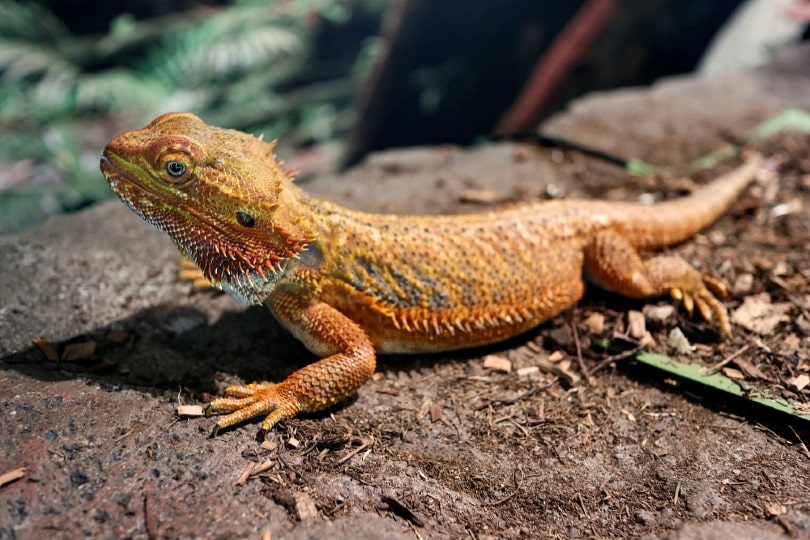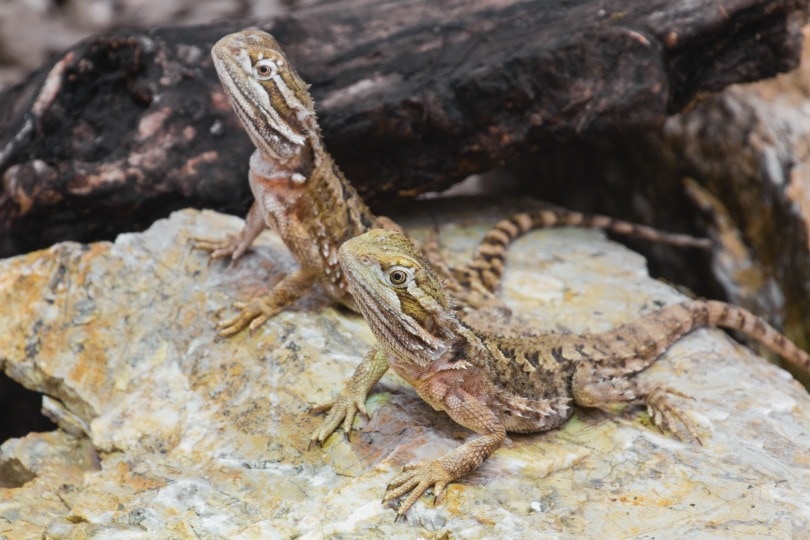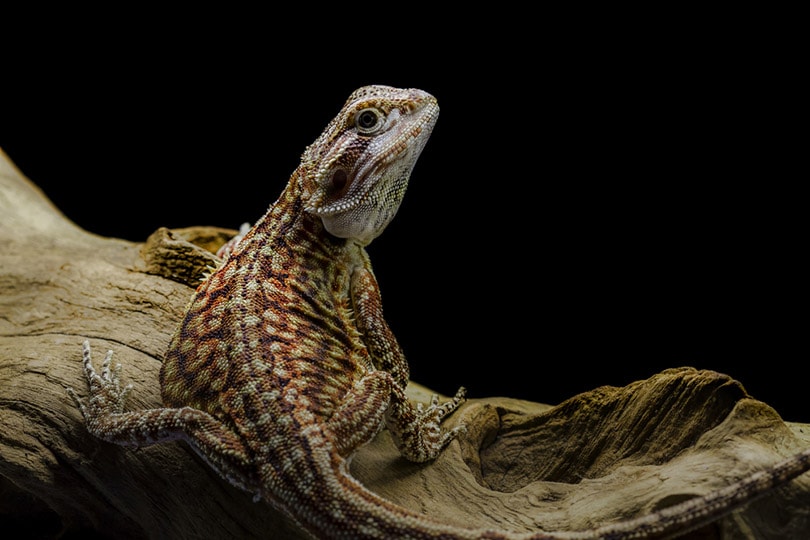
Pets smell — that’s all there is to it. If you own a pet, there will always be a smell that you will have to with. However, most of the time, it’s the enclosure that’s the problem, more than the pet itself, and the bearded dragon is no exception.
Bearded dragons themselves don’t usually smell but their enclosures sure can! We go over the methods that you can use to ensure that the tank is less likely to stink and any steps that you should take if you suspect that the odor might actually be coming from your beardie.
 How to Get Rid of Bearded Dragon Smells (7 Ways)
How to Get Rid of Bearded Dragon Smells (7 Ways)
1. Remove Food
One major factor that can contribute to a smelly bearded dragon enclosure is uneaten food. Food that is just sitting there will start to rot and can give off an unpleasant stench. Be sure to remove all food that hasn’t been eaten after 24 hours.
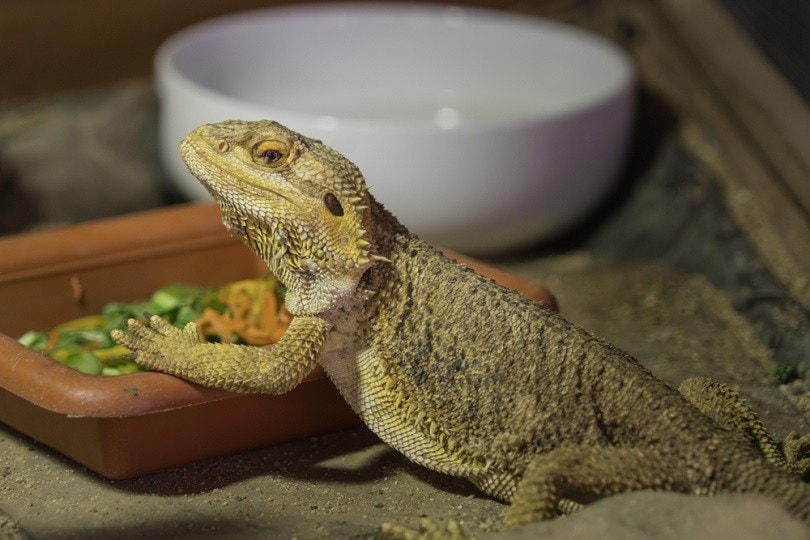
2. Clean the Tank
If the tank smells, you should stay on top of keeping it clean. This can help reduce the smell and keep your beardie healthy.
You should be spot-cleaning the tank once or twice a day, which includes removing uneaten food and their feces and urates (the white or yellow paste that bearded dragons pass instead of urine).
You need to regularly clean the tank at least once a week, which will include cleaning the substrate and all surfaces with a disinfectant that has no harmful chemicals.
Finally, once a month, you need to do a deep cleaning of the enclosure, which is where you remove everything and clean the entire tank with soap and water or a safe disinfectant. Once everything is completely dry, clean all items before placing everything back inside.
3. Substrate
Sometimes the issue can be with the substrate. Loose substrates, like sand, are difficult to clean. They can have uneaten food and poop hiding underneath, which are easily missed when you’re doing your daily spot-cleaning. Or, if you’re using substrates like wood chips, they can absorb excess moisture, which can lead to bacterial growth.
Substrates like reptile carpet or tiles and even newspaper or paper towels are easier to clean and less likely to contribute to a bad odor. But they still need regular cleaning or replacing.
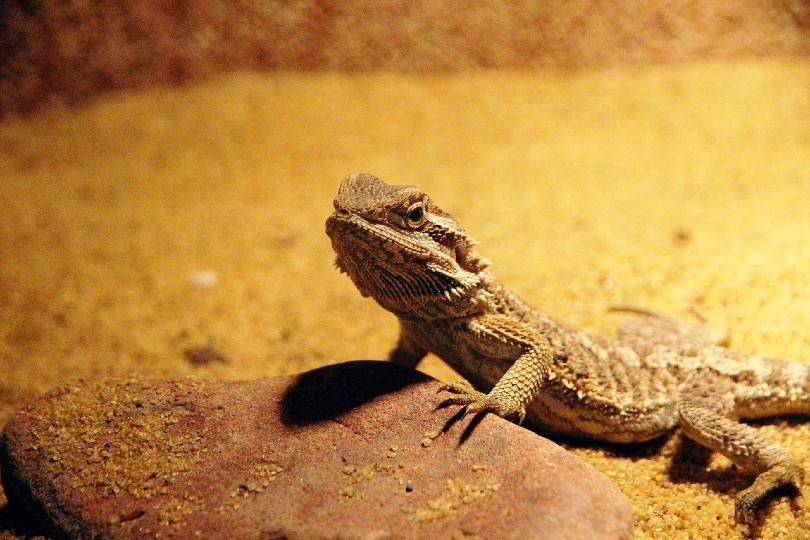
4. Humidity Levels
The suitable humidity levels for a beardie’s enclosure should be between 35% and 45%, which emulates the dry, natural habitat in their native Australia. If the humidity is too high, the tank will become too moist, which can promote bacteria growth.
Your best bet is to invest in a good and accurate hygrometer, which will enable you to adjust the humidity if it fluctuates too much. You should also let the tank dry in between mistings.
5. Bath Time!
If the smell does seem to be coming from your bearded dragon, you’ll want to give it a bath. Sometimes, a beardie can suffer from a fungal infection, which can cause a stinky odor.
The first thing that you should do is give your bearded dragon a bath, as this can help you determine if there’s a fungal infection or if you just have a smelly lizard. Make the bath warm and let your beardie soak, but don’t use soap. You can give it a gentle scrub with a soft brush around its legs, tail, and belly, but avoid the face and vents.
If you do suspect a fungal infection or another health issue, you need to take your beardie to a vet who specializes in lizards.

6. Use Products
There are many products on the market that can reduce the odors from a lizard’s enclosure. The odor-reducing substrate can be mixed in with the kind that you already use, which can help reduce odors. also, specially-made liners can make clean-up much easier and have enzymes that can help reduce odors.
If you're trying to find an enzyme cleaner that does it all, we highly recommend our favorite cleaner, the Hepper Advanced Bio-Enzyme Pet Stain & Odor Eliminator Spray.
- ADVANCED ENZYMATIC CLEANER - Penetrates the most stubborn smells and stains at the deepest molecular...
- FOR ANY MESS, ON ANY SURFACE - This pet odor eliminator cleans your carpets, floors, furniture,...
- FRESH, NATURAL ODOR - Our unique formulation doesn't rely on dangerous or unpleasant chemical...
It permanently removes the very worst stains and smells you can imagine and makes clean up a breeze. There's even a 100% satisfaction guarantee! Click here to order a bottle today.
At Pet Keen, we’ve admired Hepper for many years, and decided to take a controlling ownership interest so that we could benefit from the outstanding products of this cool cat company!
7. Air Out the Enclosure
Sometimes the tank might smell because there isn’t enough air circulating inside, so odors can become trapped. You can take out the screen for several minutes every day, and make a point of doing this when you’re handling your beardie.
Also, try to ensure that the tank is in an area that has good air circulation.
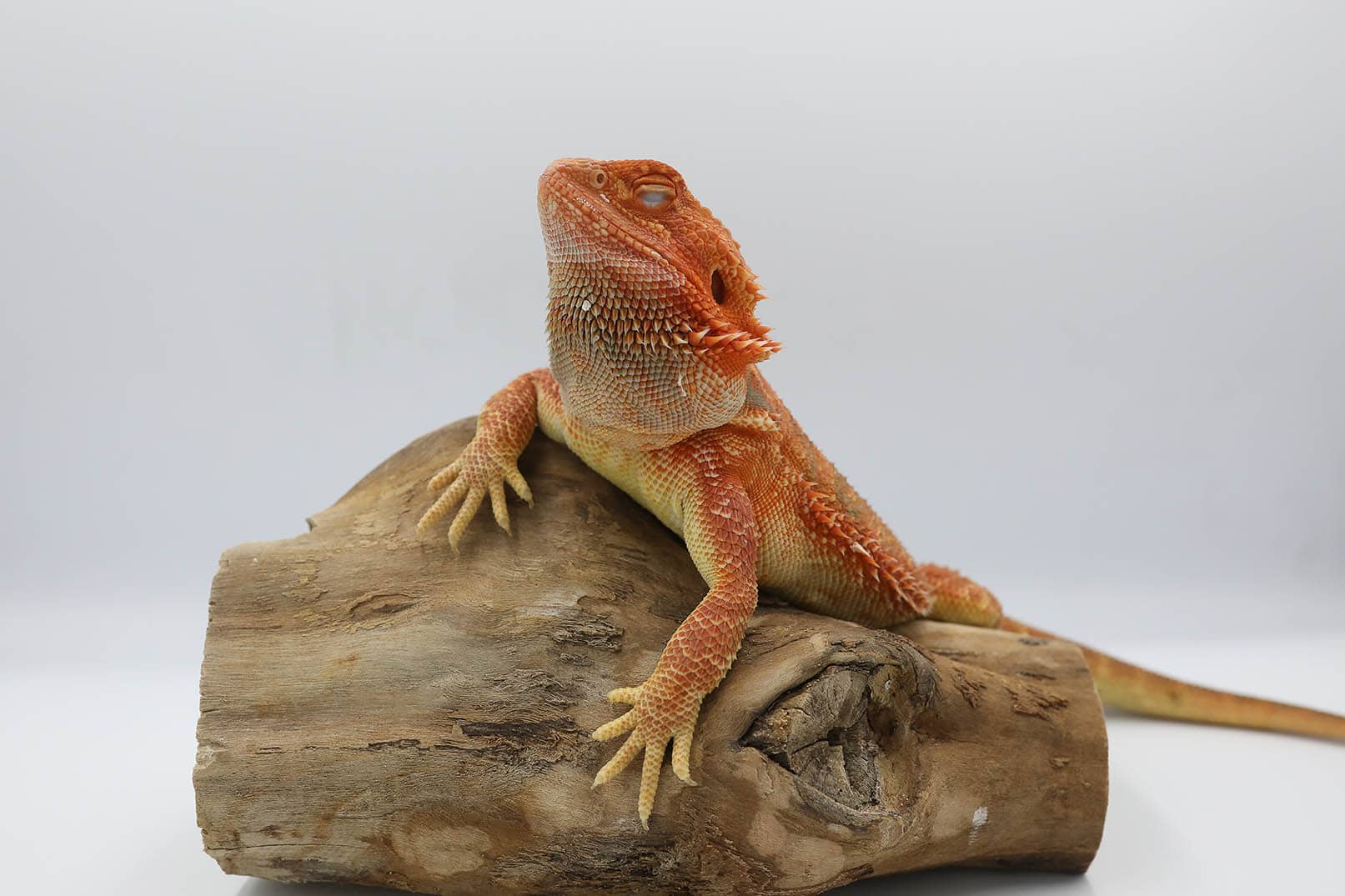
Do Bearded Dragons Ever Smell?
Overall, beardies don’t usually have any smell. Beardies are lizards and are cold-blooded, so they don’t sweat.
Some bearded dragons might smell because of a health issue like a fungal infection. If their enclosure smells bad, they can smell like their environment because they spend most of their time in it.
But bearded dragons, like other reptiles, don’t have much of an odor, except for their poop.
What About Their Poop?
Unfortunately, bearded dragon poop is quite smelly. They poop once a day or one to three times a week, depending on their diet. You’ll want to scoop it fairly quickly because it does contain bacteria, and you don’t want your beardie crawling through it. This can make your beardie odorific themselves.
It’s a good idea to keep an eye on their poop because if you notice any changes in color or consistency, it can indicate a problem, so you should consult your vet.
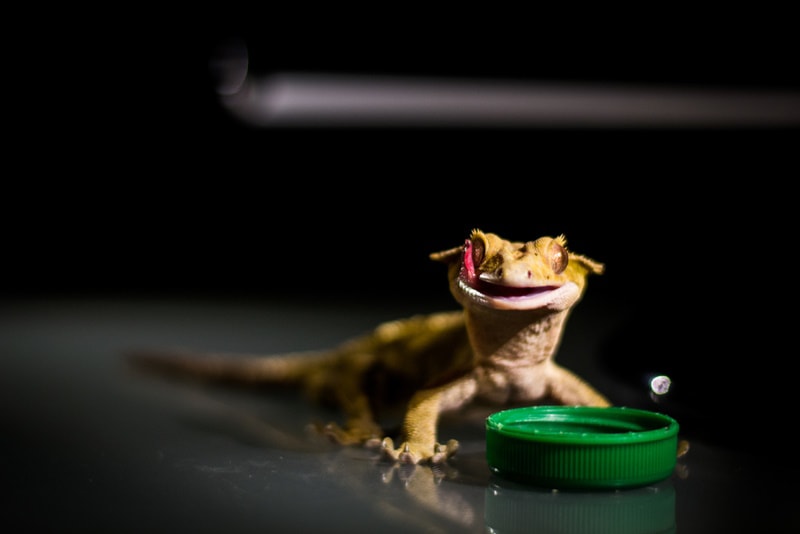
 Conclusion
Conclusion
Bearded dragons don’t smell but their environment sure can. If you bathe your beardie and you still notice an odor coming from it, you should speak to your vet because it could indicate a health issue.
But as long as you keep the enclosure clean through spot-cleaning and weekly and monthly deep cleans, any possible smell will be at a minimum. Your beardie will undoubtedly be much happier for it.
See Also:
- Why Is My Bearded Dragon Turning Black? 13 Reasons
- How to Get Rid of Leopard Gecko Smell (6 ideas & Tips)
- How Many Babies Do Bearded Dragons Have? How Many Eggs?
Featured Image Credit: Worraket, Shutterstock

 How to Get Rid of Bearded Dragon Smells (7 Ways)
How to Get Rid of Bearded Dragon Smells (7 Ways)
